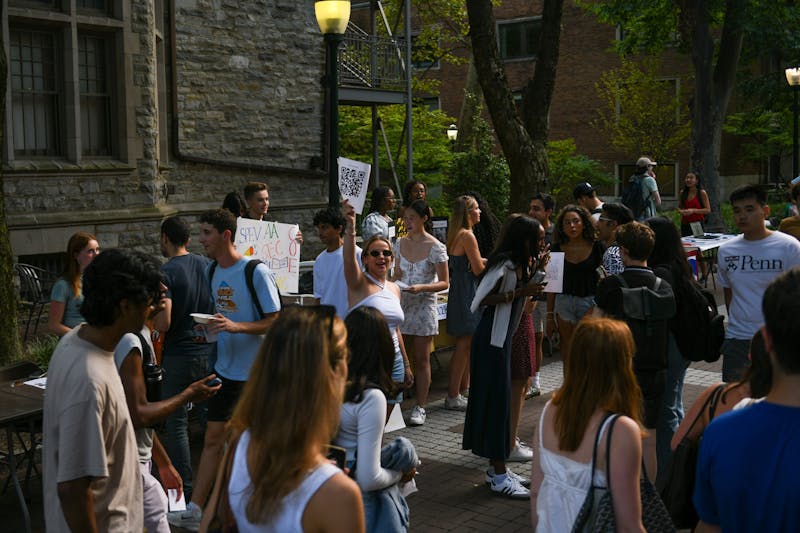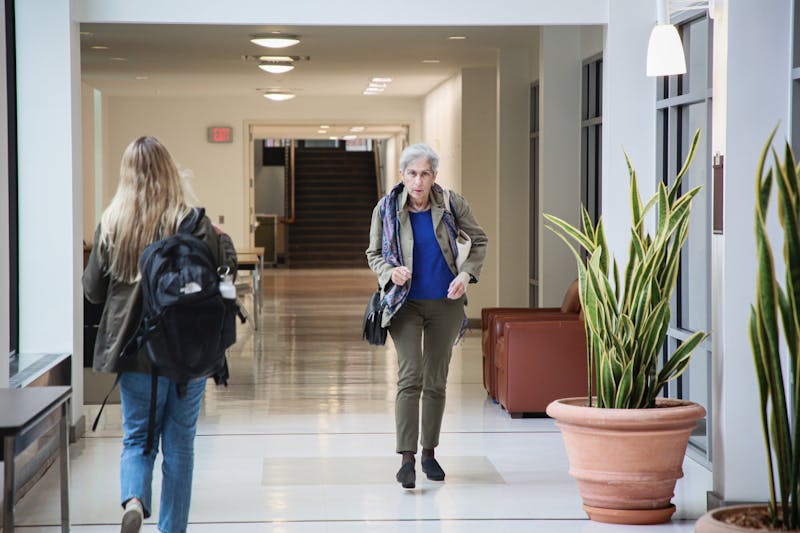"Inveniemus viam aut faciemus."
For those of us who don't speak Latin, this phrase means "We'll find a way - or we'll make one," and it's a favorite of Dean of the College of Arts and Sciences Dennis DeTurck. He believes it's an excellent motto for College graduates in finding a career.
Along with all other College students, I recently received a brochure from DeTurck entitled "Career Paths for College Students." DeTurck opens the brochure's cover letter with the Latin motto in an attempt to prove that a broad arts and sciences education will allow students to navigate "the career twists and turns that lie ahead."
The brochure outlines the stories of several College alumni who have found success in fields like the film industry, real estate, medicine, journalism and communications. These alumni have enviable jobs - one is the vice president of pharmaceutical giant Merck and Co.; another is the senior vice president and editorial director for MTV Networks.
How did these alumni get interesting, rewarding, high-paying jobs? They offer up broad advice like "be brave" and "follow your passion."
How cliche. Is anyone else gagging?
I agree that a broad education is important and that College students will thus be well-prepared for whatever career path they choose. However, a broad education alone will not create great career opportunities. A lot comes down to one seemingly arbitrary thing: who you know.
The Wharton School of Business emphasizes the importance of networking to its undergraduates, touting the largest alumni network of any business school. So why can't the College do the same?
Teaching students that a liberal arts and sciences education is relevant and useful isn't enough; the College needs to show students just how to put that education into practice. Making connections plays a big part in enabling students to do just that.
True, some of the alumni in the brochure recognize how networking helped them get where they are now: Cheryl Family, who works for MTV Networks, wrote to Daily Pennsylvanian alumni asking for informational interviews when she was looking for work; Wall Street Journal reporter Stefan Fatsis was advised by his DP colleagues while applying for jobs.
But the brochure mostly focuses on examples of what career paths College graduates can take, instead of offering real advice on how to get there. Sure, I can try to "enjoy the journey" and "dare to make a change," like the brochure suggests, but I doubt that alone will land me a job at MTV or Merck and Co. Networking can provide opportunities like these.
Luckily, the College is beginning to recognize how networking is useful for liberal arts students. It currently boasts alumni mentoring, but improvements in helping students connect with non-alumni can still be made.
RealArts@Penn recognizes the need for College students to connect with established professionals to put their educations into practice. The new project, launched by the Center for Programs in Contemporary Writing, hopes to help some College students network outside of the University with real people who practice art in the real world.
According to RealArts@Penn coordinator Mingo Reynolds, the program was also designed to "give creative students some real business experience, so that they're not quite as shocked by having to do both the business side and creative side when they work in the creative industry."
For the summer of 2008, RealArts@Penn is offering six internships, including one at Rolling Stone magazine and one for MTV Networks. According to the program's Web site, the internships offer "unique, special arrangements with the hosting entities" and a $2,500 stipend.
Although the program is in its pilot year, Reynolds said that the student response was overwhelming - about 150 students applied, many for more than one internship.
"These seem like opportunities students are interested in," she said.
This program is exactly what the College should be offering. It acknowledges the importance of networking in the world of arts and sciences and helps students make those connections. RealArts@Penn may also give College students the business experience they need to put their liberal arts educations to work.
The next step for the College would be for programs like RealArts@Penn to be offered in different fields. Why not have RealCommunications@Penn? Or RealTechnology@Penn? Offering internships and connections inside and outside of the alumni network in different fields would give interested students a real advantage in finding "a way - or making one."
The author is a College freshman from Middlesex, New Jersey.
The Daily Pennsylvanian is an independent, student-run newspaper. Please consider making a donation to support the coverage that shapes the University. Your generosity ensures a future of strong journalism at Penn.
DonatePlease note All comments are eligible for publication in The Daily Pennsylvanian.







